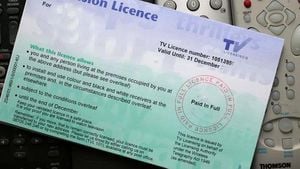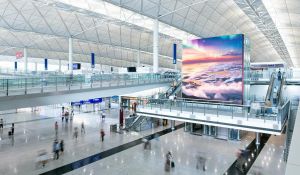South Korea is ramping up efforts to improve language education for multicultural students with the introduction of several innovative initiatives, including the integration of artificial intelligence (AI) technology. Beginning from the 2025 academic year, the Seoul Metropolitan Office of Education is embarking on various programs aimed particularly at students with diverse backgrounds who struggle with Korean language proficiency.
Among the key projects is the establishment of the 'Seoul-type Korean Language Preparatory School,' which is set to cater to multicultural students, particularly those who find it challenging to communicate effectively in Korean. This initiative, according to the Seoul Metropolitan Office of Education, seeks to provide customized Korean language education, thereby enhancing these students’ adaptability to school life and broadening their academic and social opportunities.
"The Seoul-type Korean Language Preparatory School will support multicultural students who face language barriers," said the spokesperson for the Seoul Metropolitan Office of Education, highlighting the pressing need for such programs as the number of multicultural students continues to rise against the backdrop of declining birth rates among the native population.
Simultaneously, universities such as Seoyoung University are also stepping up their game by enhancing their language programs. Recently, they held the completion ceremony for their winter Korean language training course, which consisted of 160 hours of intensive language education along with cultural experiences like the Hamjeong Winter Light Festival and Korean calligraphy workshops. Seoyoung University’s International Education Center Director emphasized, "Korean language proficiency is key for academic advancement, employment, and permanent residency." This sentiment echoes the nationwide push to provide effective language education to foreign students, aiming to ease their transition and integration within Korean society.
On the ground, the Daegu Education Office is implementing the Korean Language Education Center, which is set to open on March 4. This initiative focuses on creative activities and immersive Korean language experiences for students from multicultural backgrounds. According to Lee Hyun-joo from the Daegu Education Office, "The Korean Language Education Center aims to help students adapt to Korean society effectively through language learning and cultural experiences." The center’s program design demonstrates the thoughtful consideration to create environments where multicultural students can thrive and build their proficiency through engaging methods.
Emerging developments indicate these educational programs are timely, especially with statistical data from the last decade highlighting trends of increasing multicultural student populations. Reports show the foreign student demographic has surged, particularly among middle and high school students, whose enrollment has increased significantly. The targeted approach of these language education initiatives aims to reverse the challenges faced by these groups by fostering not only language skills but also their confidence and ability to navigate an education system where they may have felt lost.
Through various methods like immersive camps and personalized courses, these initiatives offer innovative solutions for teaching Korean. For example, the newly launched Korean Language Education Camp involves practical learning through traditional games, enabling students to grasp language concepts more intuitively. "Playing games made Korean feel so much easier," remarked one student participating in the camp, underlining the positive reception of experiential learning approaches.
These advancements are part of broader efforts to support multicultural students and the expected outcomes are promising. Educators believe enhancing language skills will play a fundamental role not just academically but socially, making integration smoother and fostering friendships based on shared experiences.
With the dual reality of rising multicultural populations due to migration and declining birth rates among native Koreans, it’s apparent the educational strategies deployed now will shape the future of South Korea's social fabric. The role of language isn’t just about communication but is also pivotal to cultural integration, personal identity, and community belonging.
The multifaceted approach taken by educational institutions throughout South Korea—ranging from preparatory schools to university programs—illustrates there is significant planning and thought leadership at play. Each program not only strives to address immediate challenges faced by multicultural students but also aligns with national goals of inclusivity and educational equity.
Overall, these AI-powered and student-centered educational initiatives reflect South Korea's commitment to creating an environment where multicultural students can thrive linguistically and socially. By nurturing these foundations, the country anticipates improvements not only in language capabilities but also broader societal integration and progress.



